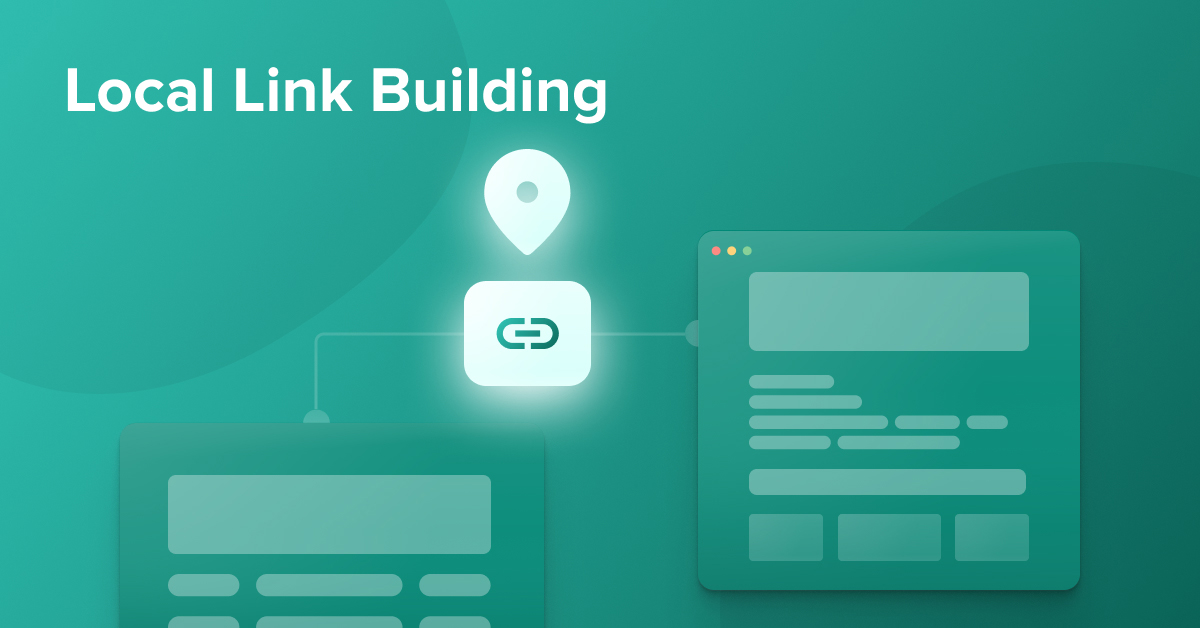
Getting traction for your local business isn’t easy.
But if there’s one strategy we can all agree on, it’s getting your business in front of more customers.
And the best way to do that? Growing your local search presence online.
In one of our previous blog posts, you learned about the most important local SEO ranking factors that can make or break your local search presence. And in another article, we explained how to optimize your Google Business Profile (formerly Google My Business) which is the most important factor influencing your Local Pack rankings.
Building locally relevant links, on the other hand, is one of the best ways to improve your organic local rankings. Backlinks are a crucial ranking factor. And a strong link-building strategy is an ideal way to grow your local search presence and get your business in front of more customers.
In this article (updated in March 2025), we’ll walk you through the process, step by step:
- Why local link building matters
- The right way to think about building local links
- Actionable strategies for building local links
… and much more.
We also talked to local SEO expert Carrie Hill and will share her views and advice on local link building throughout this article.
Ready? Let’s dive in.
Table of Contents
What is Local Link Building?
Local link building is just what it sounds like: it’s the process of building links from relevant local websites that help your business rank at the top for geographically relevant keywords.
Local links consistently rank as one of the most important local ranking factors. In 2023, a study by Whitespark found that local links are the second most important local organic ranking factor, right behind on-page signals.
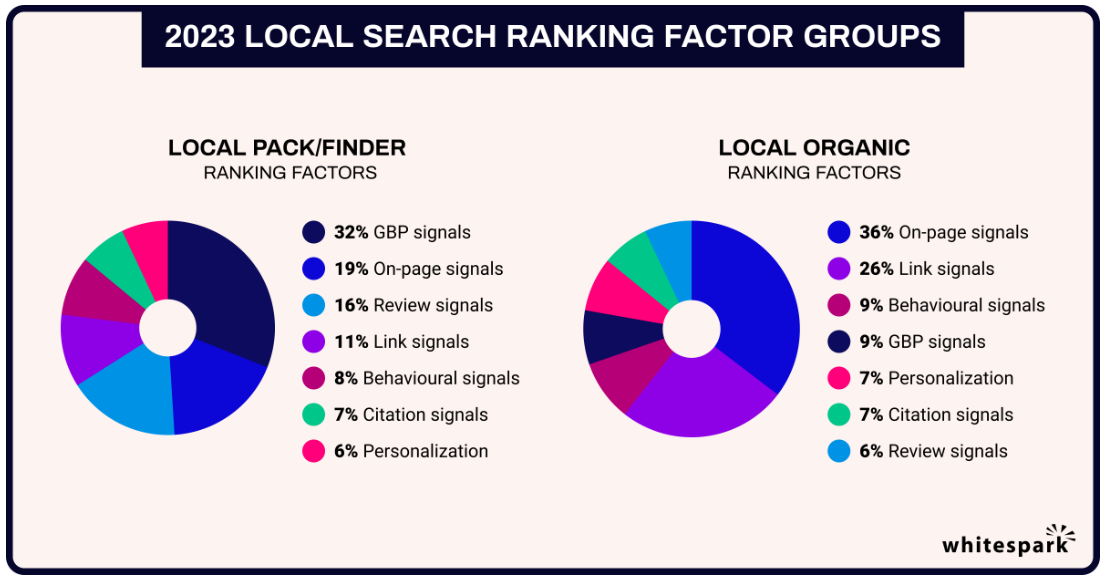
Backlinks from other websites are one of the most powerful ways to boost your domain’s authority and drive more traffic to your site. And building relevant local links is one of the best ways to establish that your website is relevant to your local community.
While there are tons of ways to build backlinks to your site — including guest posts, podcast appearances, and social media mentions — local links are different.
Local links come from sources that are relevant to your geographical area, like city guides, local business directories, and local blogs.
Suppose you run a barbecue joint in Nashville. If you pick up a link from a barbecue blog in Kansas City, that’s a relevant link that will enhance your backlink profile — but it’s not going to do much to draw local customers to your business. Getting links from local sites is the best way to reach more customers in your area.
That’s why it’s critical for local businesses to focus on local link building.
Done right, local link building isn’t just about picking up links to your site. Getting involved with your community, sponsoring local events, and building strong relationships will all help you to become a go-to brand in the minds of your customers. When you take these steps, strong local links will follow naturally.
Understanding Local Link Building
Let’s get clear on how local search rankings work.
Google has two types of local search results: the Local Pack, and local organic results.
The Local Pack is the set of three local businesses that appears in any local search, along with a map of their locations:
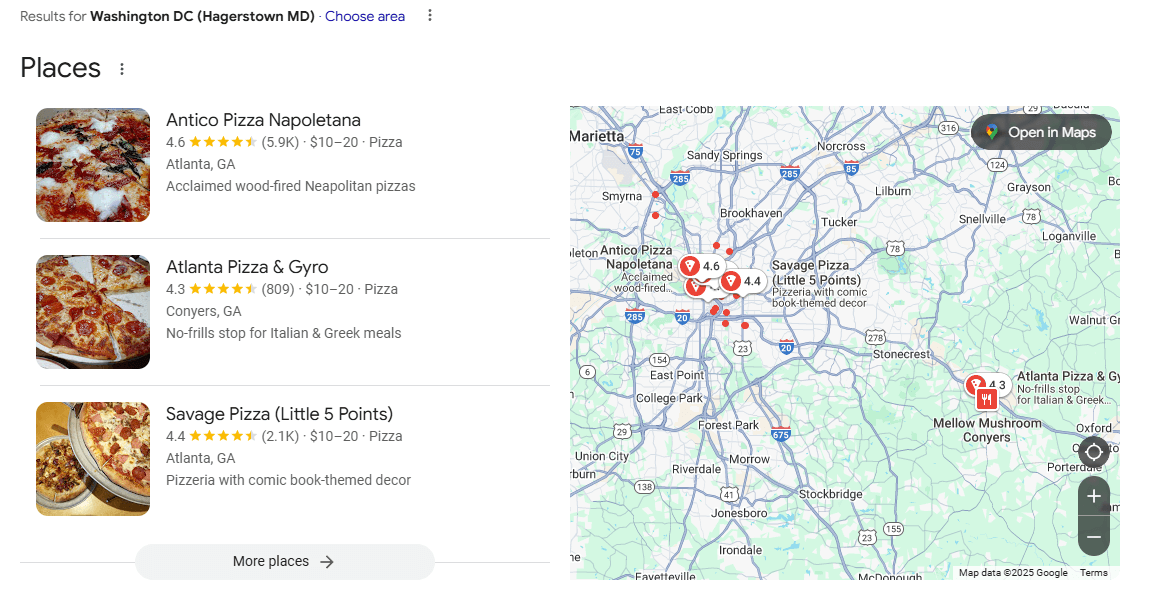
Google Business Profile signals like reviews are by far the most important factor for ranking in the Local Pack. That’s according to Whitespark’s study of local ranking factors. For more information, check out our deep dive on how to optimize your Google Business Profile.
Beneath the Local Pack, you’ll see local organic results. For example, when you search for “Atlanta pizza,” the local organic results bring up Atlanta pizza places in the results, along with other relevant links like local guides and directories:
Changed from Washington DC
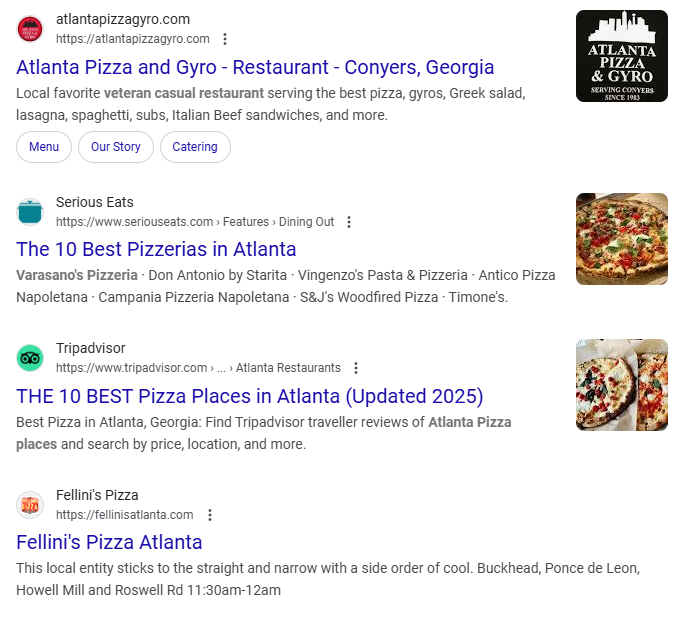
Local organic results are largely based on on-page signals and link signals. That’s why it’s so critical to build strong local links if you want to grab a prime spot in local organic results.
Local Search in the Age of AI
These days, AI applications like ChatGPT, along with Bing’s and Google’s new AI search features, are becoming more important to optimize for. And although these are not all labeled as search engines, they are places people go to to search for local business recommendations.
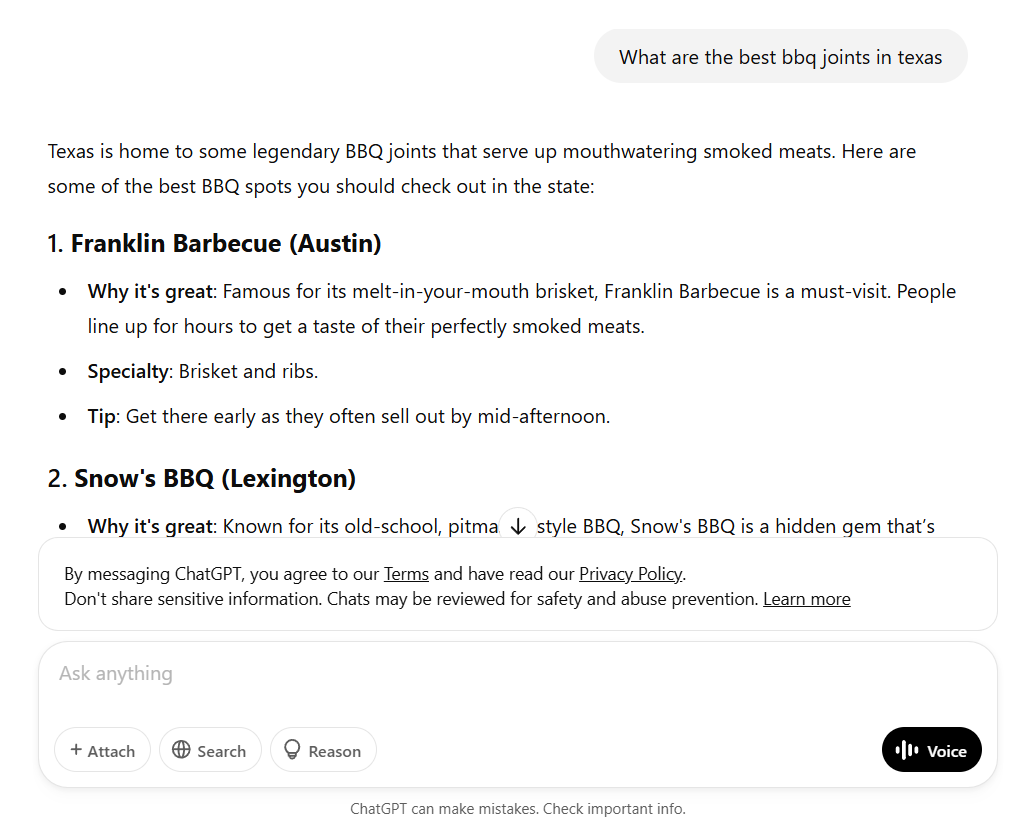
These AI models base their answers on training data, which, according to OpenAI (the company behind ChatGPT), includes:
- Information that is publicly available on the internet
- Information that they partner with third parties to access
- Information provided/generated by trainers/researchers
They mention that they use information freely available on the internet and go on to say that “it learns about associations between words and concepts, and those learnings help the model update its numbers/weights. The model then uses those weights to predict and generate new content in response to a user request.”
This suggests that mentions (and on which sites those mentions are found) could influence whether your local business is known by LLMs like ChatGPT or not, as well as how often and in what “position” it shows up.
On top of that, newer models can even search the web or are integrated into search, as is the case with Microsoft Copilot.
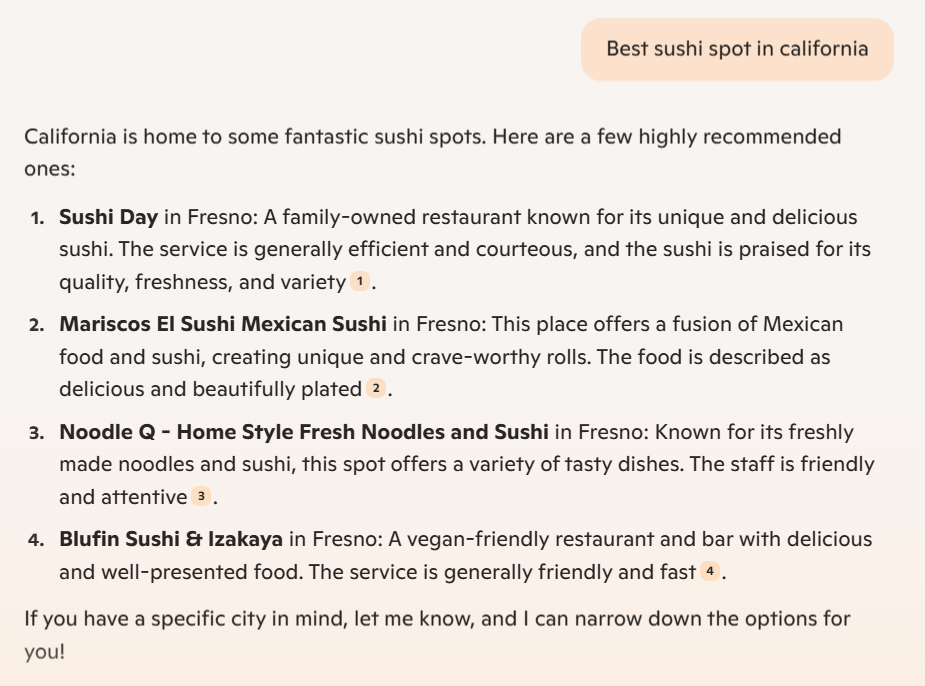
While reading this post, it’s important to consider AI search, keeping in mind that citations, (unlinked) mentions, and even reviews could become more important over time, working similarly as local links do for traditional search.
Luckily, the tips, tricks, and methods covered throughout this post will help you on these fronts too!
The Challenge of Local Link Building
When we think of link building, we usually think about going out and finding as many high-authority domains as we can, and getting as many as possible to link back to our site.
The challenge with building a strong local search presence is that most local businesses don’t have a strong content game. Small business owners typically don’t have the time or resources to invest in creating content, so they rarely have linkable assets that can attract a lot of backlinks.
When users search for a local business, their intent isn’t to find an epic piece of content. They just want to find the best service providers in their area. That means they’re usually searching for navigational keywords like “DC coffee shops,” not informational keywords like “how to make cold brew at home.”
Small businesses often earn links based on their relevance to the local community. Local websites are more likely to link out to local small businesses than to large national brands. That’s why doing outreach to your local market is such a key part of building local links.
How to Build Local Links The Right Way
To grow your local search presence, you need to think bigger.
You’re not just building links. You’re building a strong local brand.
We talked to Carrie Hill, a local search expert and community manager with Sterling Sky. Since 2005, Carrie has been a leader in the digital marketing space, speaking at conferences on topics like community building, content creation, and more. She runs LocalU Advanced, a series of in-person and virtual events focused on local marketing.
“I’m not a fan of the term ‘link-building’. The benefits of building links within your community can return so much more than just the link. Think about the partnerships you forge while you discuss opportunities between your brands. They can refer business to you, while you refer business to them. We evolved from link building to brand-building nearly a decade ago – and really started pushing our clients to invest in the relationship, not just the link.”– Carrie Hill
Local Link Building Strategies
Building local links is often more challenging than building links for a large brand. You’ll be focused on locally relevant keywords that don’t have a high search volume, and many of the websites you reach out to won’t have a high domain authority.
But there’s good news. There are a number of proven ways to build a strong link profile within a local market — and build your brand at the same time.
Let’s take a closer look.
Build Citations
When you’re getting started with local links, building citations should be your first step. The goal of citation building is to get basic information about your business placed in as many sources as possible.
Citations are not the same as backlinks. Backlinks are links from other websites to your own site. Citations, on the other hand, are listings in online business directories that include your business’s name, address, and phone number, often abbreviated to NAP. These business directories often also include a link to your website — so building citations can often also help you earn links.
With business directories, you usually get nofollow links. But these links are incredibly easy to build and help your business establish relevancy, making it worthwhile to get as many relevant directory placements as you can.
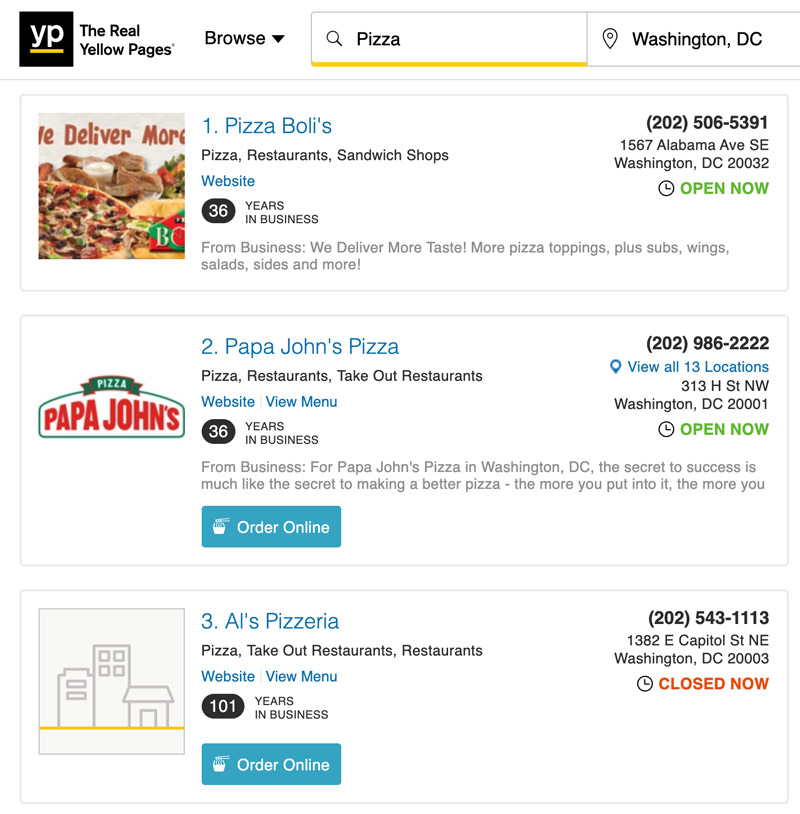
There are dozens of free local business directories where you can build citations, like Yelp, YellowPages, NextDoor, and more.
To find more citation-building opportunities, look for industry-specific directories that are focused on your specific niche. Industry-specific directories are easy to find using search terms like these:
- (industry) directory
- (industry) listings
- (city) (industry) directory
- (city) (industry) listings
Be sure to do some background research on the directories you find before you start building links. Make sure they’re aligned with your business and get a solid amount of traffic. Also, focus on directories that offer free listings. If you come across directories that require payment, make sure the benefits of getting a listing are worth the price.
Build Local Business Relationships
The single most effective way to get backlinks is surprisingly simple: forming great business relationships in your local community. When you shift your focus from building links to building relationships, you’ll start to naturally spot opportunities to build links.
As Carrie mentions, the best place to start is with the connections you already have.
“The great thing about building links for local businesses is that the relationships you need to get started are likely already in place. You have an insurance agent already – a material or product supplier, a restaurant next door to your shop that offers the opportunity for customers to shop with you and grab a bite to eat all in one trip. These partnerships are all opportunities for local links.”
Here are some of the best ways to start building your business relationships.
- Review your contact list. You’ll almost always find good opportunities by reaching out to people you already work with on a regular basis.
- Partner with business owners who offer services that complement yours. If you’re a realtor, you might be able to get links from contractors or mortgage brokers.
- Reach out to your suppliers. Many manufacturers feature the companies they work with on a vendors page. Getting in touch with these brands can be an easy way to pick up links for your site.
Building business relationships is far more effective when it’s done in person. If you have an opportunity to talk face-to-face with someone you regularly work with, you’ll get a lot farther than if you just send an email.
Get Local Press Mentions
Reaching out to local newspapers, websites, and blogs is a bit more labor-intensive than other link-building strategies, but it’s a great way to build a stronger presence in the local community.
To build links from local press, start by looking for sites where your business has already been mentioned in an article, and reach out to ask for a link. Send a short, polite email to the editor and ask them to adjust the text so that it links to your website. Simple.
Once you’ve run through existing press mentions, it’s time to start getting new features. Assemble a list of local publications and websites. Then use Google’s Advanced Search to search each one for terms like these:
- business feature
- business spotlight
- entrepreneur spotlight
- (city) business feature
- (city) business spotlight
Examining your competitors’ backlinks can also show you sites where other businesses have been mentioned in the press, but more on that later.
Once you’ve identified your target, it’s time to reach out. Get in touch with writers who are interested in what you’re doing. Don’t just ask for a feature — offer a compelling, newsworthy angle that will be of interest to readers.

Carrie suggests working with a PR professional to simplify the process:
“Having someone who understands how to build relationships with local businesses, and can place your name in front of them at just the right time, would be an invaluable resource. If you can’t afford to contract with a PR firm or consultant, buy an hour or two of consultation with a local PR professional. Pick their brain about the best places to partner with locally — and who’s willing to wheel and deal for a profile (and a link) on their website.”
Connect with Local Influencers
Reaching out to local bloggers and influencers is another terrific strategy for building your presence in your local community.
Many cities have widely read local blogs, like Brokelyn in New York City or Popville in DC. These sites can be a great place to score a feature – and pick up a backlink in the process:
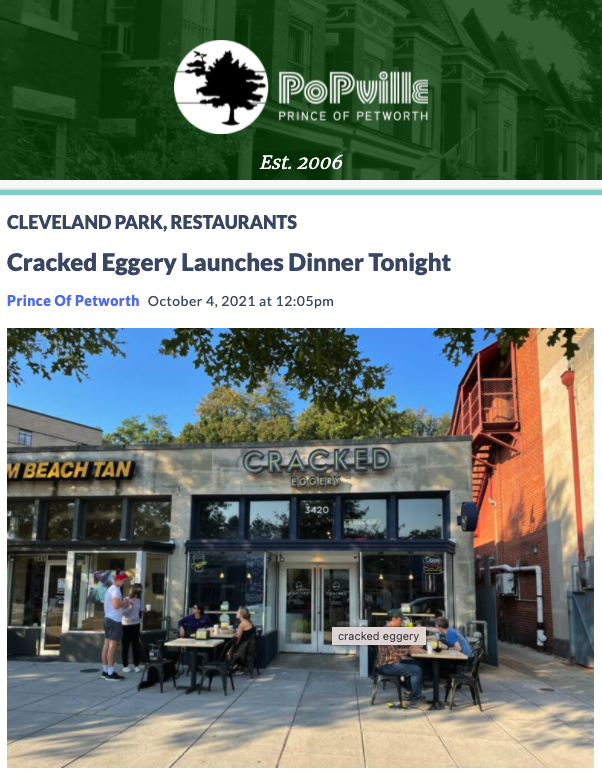
Local bloggers and influencers are always on the lookout for opportunities to create great content. Consider gifting them your product, service or similar to make it worth their while. By connecting with these influencers to do a feature on your business, you can get a terrific feature and pick up a backlink in the process.
Collaborate With Local Experts
Connecting with local experts is another way to build strong relationships in your community. One ideal way to do this is to work with local experts in niches that are closely related to your own.
If you’re an accountant, you might partner with a local financial planner to create content on investment and retirement planning for your site. If you run a pet supply store, you might partner with a local vet to write articles on animal care and training.
Start by identifying relevant specialists that are adjacent to your niche. Use online directories to find local professionals who are authorities in that space:
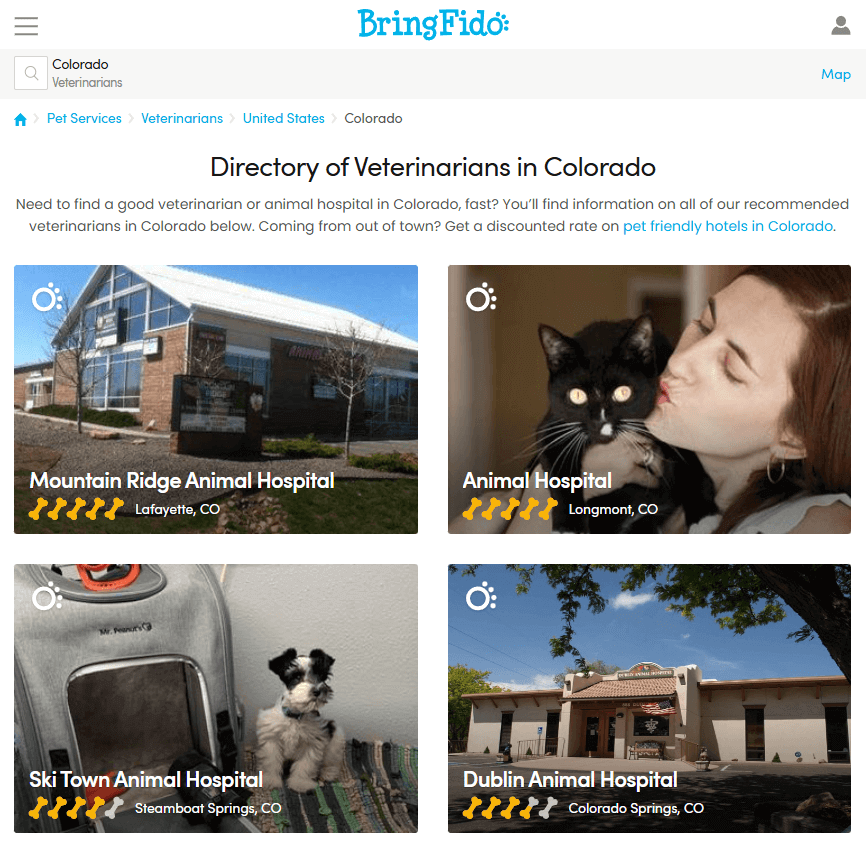
By reaching out to these experts, you can find potential partners who you can work with to create expert content on the topic at hand.
Partnering with local experts helps you create more useful, informative content for your readers. And when your partners share your content on their websites and social media accounts, you’ll collect backlinks that give you a solid SEO boost.
Sponsor Local Events
If you’ve ever attended any local event, you know they’re a great way to gain exposure for your business while also getting more involved in your local community.
“You might sponsor a car in the local homecoming or 4th of July parade, the little league team your kids already play on, or the local news radio show. You might support a charity through sponsorships or scholarships – which supports your local community and is something you can talk about on the philanthropy and community involvement pages on your own website.
All of these types of sponsorships allow for branding, and those sponsorships and scholarships may in turn have websites that could link back to you. This is all real-world stuff that can result in a link.”
Just check out how dozens of brands are sponsoring the New York City Marathon – and picking up a strong backlink in the process:
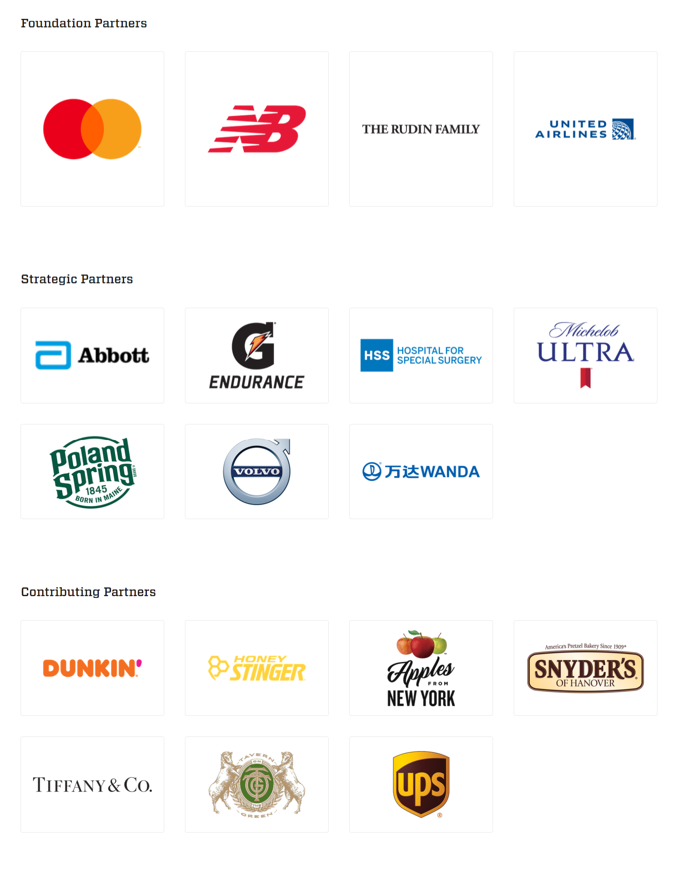
When you sponsor an event, you’re not just getting a solid backlink. Many event sites get a lot of traffic, which in turn can drive more visitors to your site.
But how do you find local events to sponsor? Here are some of the best strategies:
- Check your local city paper. In your city paper, you’ll often find local event calendars that can be great opportunities for sponsorship.
- Scan local event calendars. Local news and government websites often maintain event calendars — and you can often get a mention by hosting or sponsoring these events. Run a quick Google search to find them:
- Use Google to find events. By running targeted Google searches, you can turn up loads of local sponsorship opportunities. Run searches like these:
- Check out Meetup. On Meetup, you’ll find lots of local events that don’t have a permanent location. By offering your business as a consistent venue, you can pick up a mention — and often a backlink, too.
(city) events
(city) event calendar
(city) intitle:sponsors
(city) intitle:association
(city) intitle:donors
You can fine-tune this search by adding specific topics:
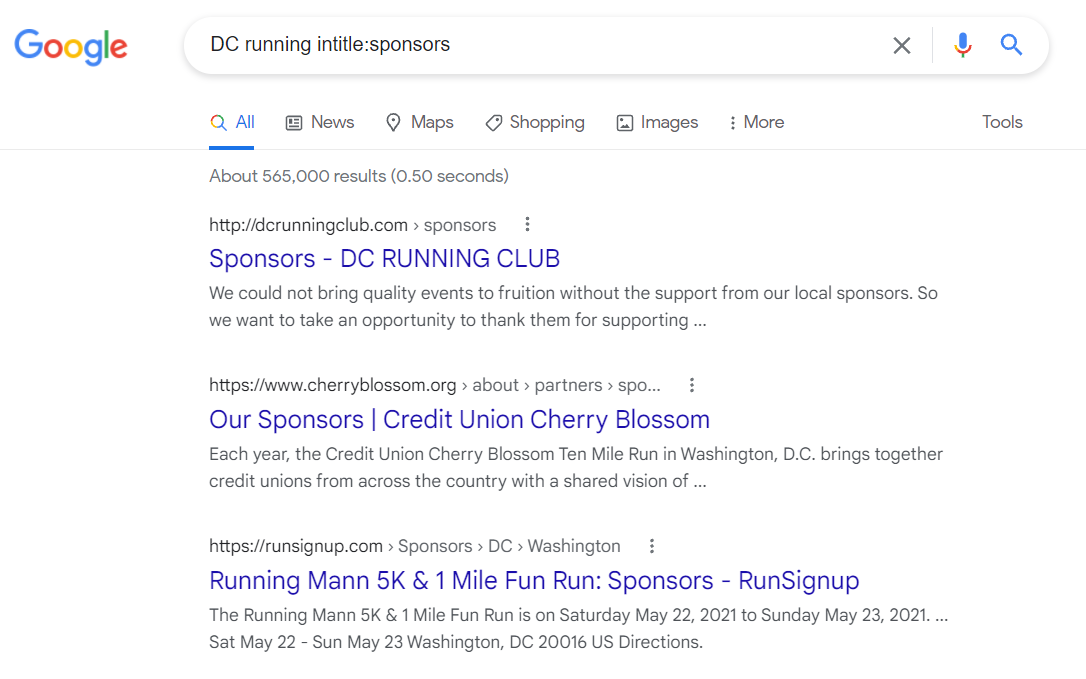
Join Local Business Associations
Business associations enable you to build trustworthy links that boost your relevancy and improve your position in local search. And with the right Google searches, they’re easy to find:
- (city) (keyword) association
- (city) (keyword) society
- (city) (keyword) council
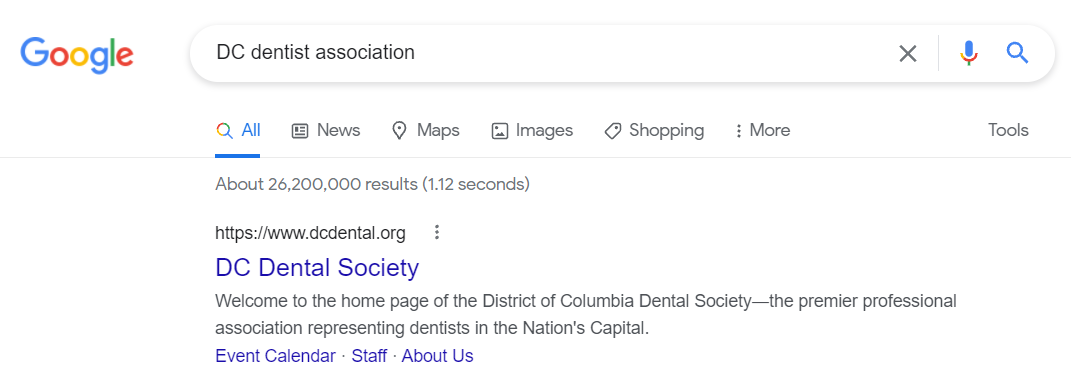
If you’re considering joining a local business association, take a look at their site to see if the SEO benefits will be worthwhile.
- How do they rank in Google? If they’re not on page one, they might not be highly relevant to your industry.
- Do they have a member database? Make sure you have an opportunity to get a listing that includes a link and citation.
- What is their domain authority? Sites with higher domain authority will deliver a bigger boost to your search placement.
Be Active on Local Forums, Social Channels, and Sub-Reddits
Local forums, social channels, and subreddits can be a goldmine for building local links and mentions, as well as for engaging with the community.
Building a name for yourself by answering people’s questions and being genuinely helpful on local forums/social channels can help you build a name locally. Not only will mentions of your brand help build unlinked mentions, but the reputation you develop will also make it easier for you to build connections with other local business owners.
You can use the following search terms to find local forums and social channels:
- (city) forum
- (location) Subreddit
- (city) Nextdoor
Build a Local Resource Page
If you’re trying to get links on other locally relevant pages, one of the best things you can do is to create your own. When you build a local resource page, you’re creating a guide to the best local businesses in a specific niche, like lawyers or realtors.
The principle of reciprocity is what makes this strategy so powerful. As psychologist Robert Cialdini explains, we’re hardwired to repay favors others have done for us. Once you’ve invested time to create a great local resource page, you can reach out to companies to ask for a link on their site as well.
Resource pages are a bit easier to create for smaller communities where there are fewer businesses to cover. If you’re in a large metro area, you’ll probably want to narrow in on a very specific niche to keep things manageable.
Create Locally Relevant Content
With local businesses, content creation tends to play a less important role. Locally focused content is unlikely to attract a large number of links, so it shouldn’t be your primary focus.
That said, local content can help to attract your target audience when used in combination with the other strategies we’ve discussed.
Think about the types of content local readers are searching for. Consider creating lists or articles targeting location-based keywords, like “best barbecue places in Washington DC.” How-to articles with a local focus can also be effective, like “how to make a DC-style half-smoke.” You can also use the Seobility Keyword Research Tool to find location-based keywords to base articles around.
The DC-based lifestyle magazine Washingtonian shows you how it’s done:
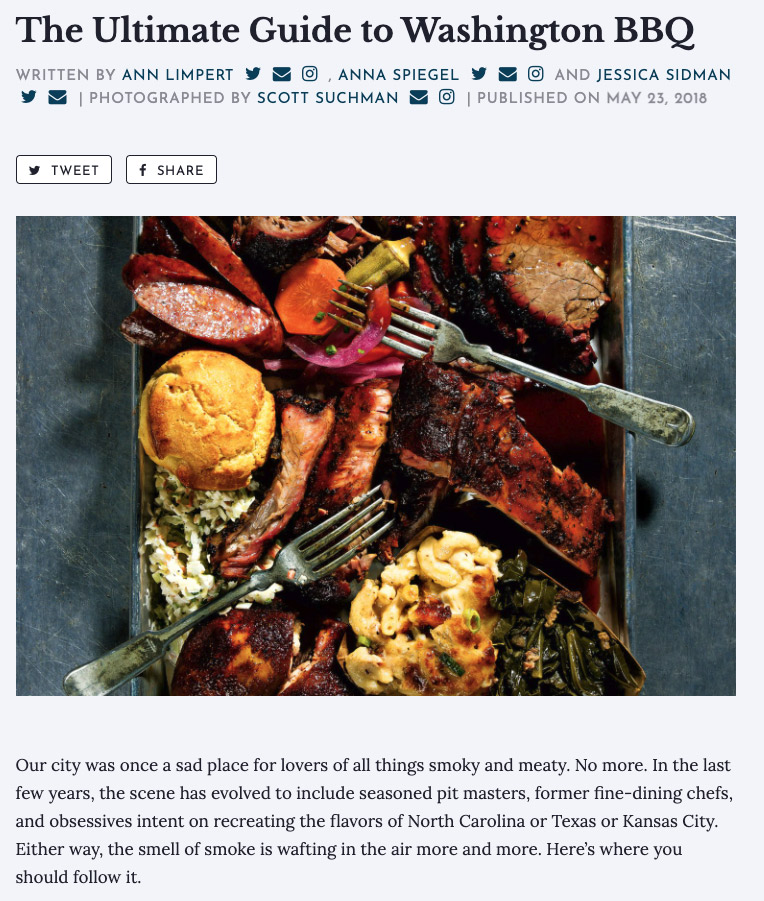
Reverse Engineer Link-Building Opportunities
One of the best ways to find link opportunities and pinpoint gaps in your own link profile is to look at what’s working for other local businesses.
While this strategy takes some time, it’s far easier with a tool like Seobility’s free Backlink Checker tool. With Seobility, it’s easy to analyze your competitors’ backlink profiles to see their total number of backlinks, referring domains, and domain authority. Examining your competitors’ backlinks can help you spot link opportunities by showing you relevant sites that are linking to your competition but not to your website.
To do this, head over to the free Seobility backlink checker tool and insert your competitor’s domain:
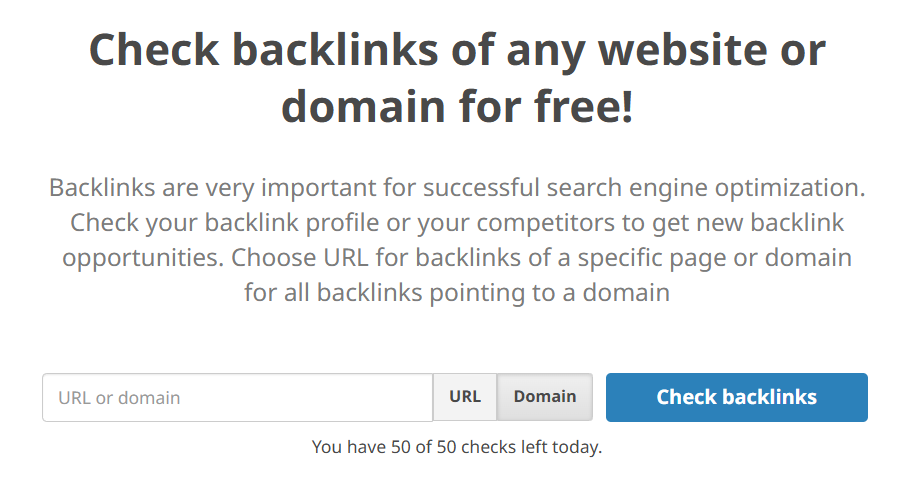
After pressing “Check backlinks” you’ll be shown a list of all your competitor’s backlinks. This will uncover backlinks that you can get too, either by creating an account or reaching out to the website owner.
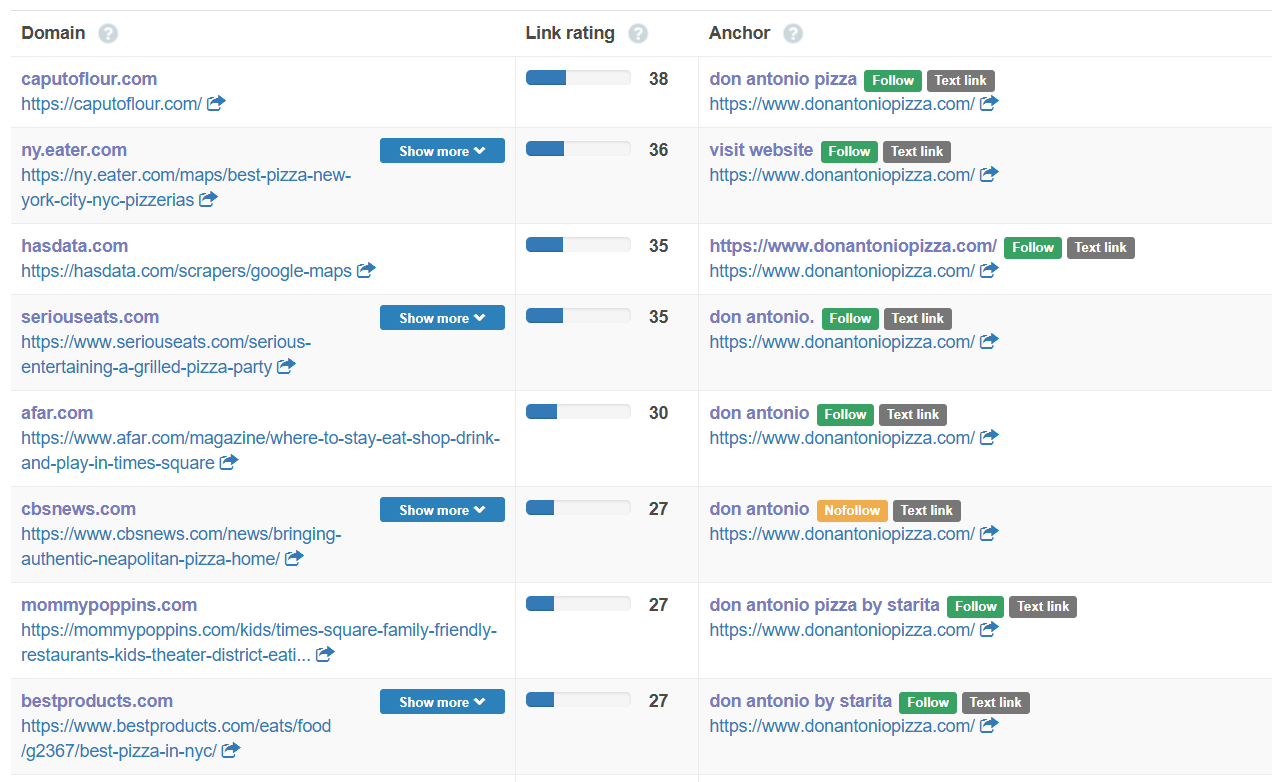
Unlinked mentions
As discussed already in this post, unlinked mentions are mentions of your website or brand online without them actually linking to you. These already have an SEO benefit, both for “traditional” search and AI search.
However, turning unlinked mentions into links still has its benefits. For starters, it’s way easier for someone reading the article to navigate to your site, increasing your website traffic. Secondly, it adds a local backlink, which is still often considered more powerful than just the mention on its own.
To find unlinked mentions, you can simply search your brand name in Google or do an intext search like “intext:brandname”.
You can also do similar searches for terms unique to your business, like the owner’s name, names of certain employees if they have an online presence, or specific special products you sell, for example, a special dish you serve with its own name.
After finding them, simply reach out to the website or writer and ask if they could include a link. If it’s a mention of the business owner that doesn’t mention the company, for example, you can ask them to add something like “CEO of (business name)” to the end of the mention, with a link to your site.
Start Building Local Links For Your Business Today
With so many effective strategies for building links to your site, the best time to start is now. And if you don’t take action, you won’t improve your visibility and your presence in search.
Commit to implementing these strategies as soon as you have the chance. Open your calendar and block off an hour or two each week to focus on building local links.
And after getting started, don’t forget to monitor your backlinks with Seobility to ensure you can reach out to a website when an important link is removed or breaks. Our 14-day free trial includes the Backlink Monitoring feature, which allows you to do just that!
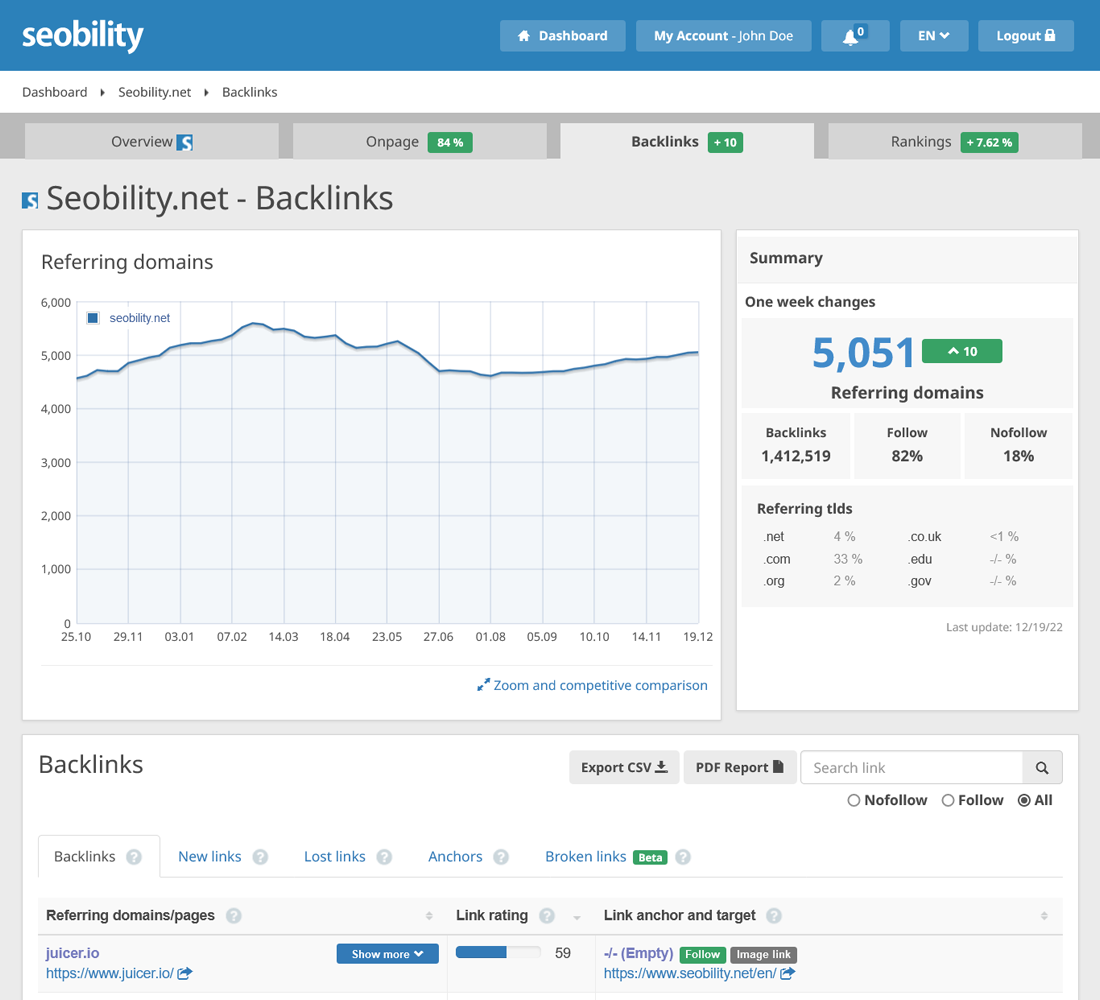
Stick with it, and before long, you’ll be the business your community is talking about!
Want to learn more about improving your rankings as a local business? Check out our other local SEO articles:
- Local SEO Ranking Factors: 7 Keys to Local Search Success
- Google Business Profile Optimization: How To Sail To The Top Of Local Rankings
- How to Run a Complete Local SEO Audit to Maintain and Improve your Local Search Presence